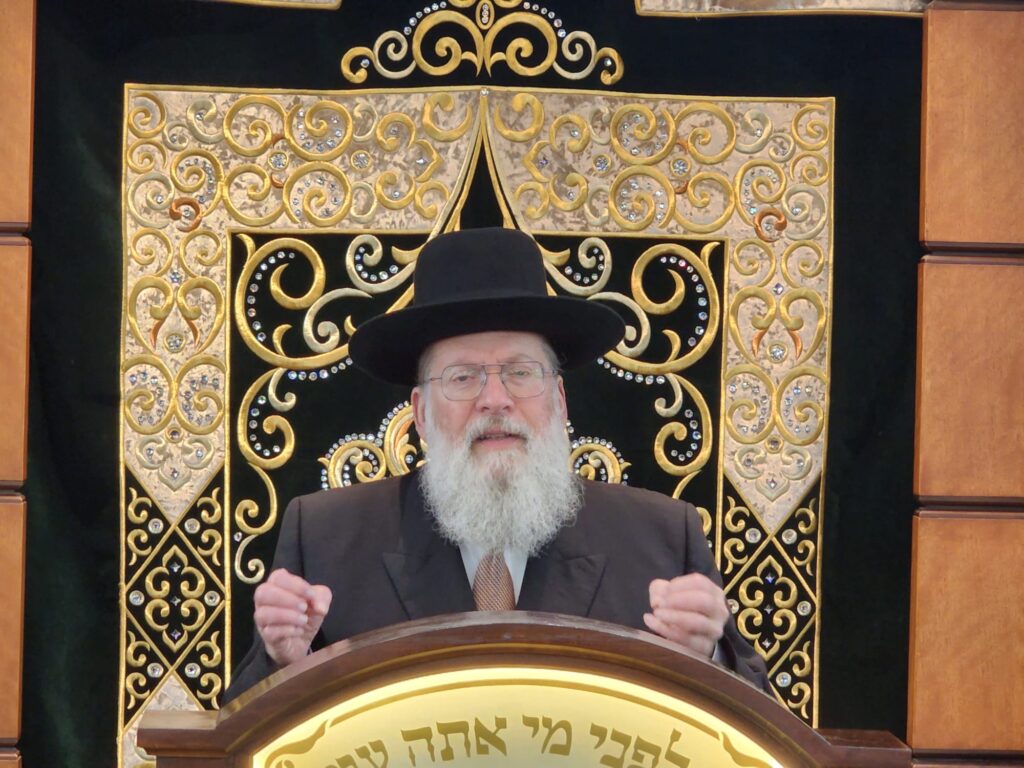Carrying Har Sinai With Us
By Rabbi Benny Berlin
Rabbi Yehoshua Fass, founder of Nefesh B’Nefesh, once shared that he was meeting with an Israeli in his Jerusalem office about a small project. Throughout the conversation, the man seemed distracted. Just as Rabbi Fass was about to bring him back into the discussion, the man looked up with tears in his eyes and said, “My son is an incredible human being.”
He continued, “My son is 20 years old. He serves in an elite IDF unit. He spends days behind enemy lines, camouflaged as a rock, a bush, or a pile of mud. Every few weeks, he comes home for Shabbos, exhausted, with those beautiful blue eyes and a mountain of laundry.”
That morning, before the meeting, the man’s wife had started to wash their son’s uniform. It was so caked with mud she had to hose it down first. In the process, she discovered something remarkable in his pants pocket: a Gemara, with the hard cover removed to fit easily inside and a tiny LED light tucked in place as a bookmark.
When they asked him about it, he explained that he maintained his daily learning schedule in the long, silent hours of the night, disguised in enemy territory. The small light allowed him to learn without revealing his position. When they asked how long he had been doing this, he quietly pulled out several more Gemaras, also worn and coverless, their pages stained with mud.
Despite being far from his beis midrash and even beyond his country’s borders, this soldier remained deeply anchored in Torah.
This story echoes a powerful theme of Shavuos: that receiving the Torah was not a one-time event at Har Sinai but a lifelong commitment to bringing it with us wherever we go.
After receiving the Torah, Bnei Yisrael began their journey away from Har Sinai. But the Torah draws special attention to this departure through the peculiar structure of the pesukim: the backward nuns that bracket the famous words “Vayehi Binsoa HaAron” (And it was when the Ark would travel).
The Gemara in Shabbos (115b) teaches that these brackets interrupt a string of three sins. First, the people left Har Sinai “like children running from school.” Then they began to complain. Finally, they longed for meat and rejected the man. But did not Hashem command them to leave? Why call it a sin?
The answer lies not in the act of departure but in how they left. Tosfos explains that they did not leave with reverence or longing. They ran, eager to move on, eager to be done. They left Torah with relief rather than responsibility.
Rav Yitzchak Hutner, zt’l, in a letter to a talmid, reflected on the pasuk, “L’Chu Banim Shimu Li” (Go, children and listen to me). Why “go” instead of “come”? He explained that sometimes it is only with distance that a student fully absorbs what he was taught. Torah is often appreciated not in the moment but years later, once life experience gives it context.
Perhaps Bnei Yisrael were not fleeing Torah itself, but the intensity of the experience they had not yet processed. They had camped at Har Sinai for a year. They may have taken it for granted. They needed perspective. It does not excuse the haste or the lack of gratitude, but it reminds us that spiritual immaturity is often a matter of timing and growth.
Rav Aaron Levine shared a beautiful insight in his rare sefer Hadras Aharon. The Yerushalmi teaches that even when Bnei Yisrael traveled, the outer Mizbeach’s fire had to stay lit. Practically, this seems impossible, but conceptually, it is a powerful metaphor. The fire of Torah must stay alive even during transition, even when life is less structured.
When you are “home,” it is easier to stay on track. You have your schedule, your chavrusa, your minyan. But when you are on vacation, away from the community, no one sees if you daven or learn. That is the true test. Can you keep the flame going when no one’s watching?
That is why the Torah repeats again and again: “Al Pi Hashem Yachanu, V’Al Pi Hashem Yisau” (By the word of Hashem they camped and by the word of Hashem they traveled). Whether at rest or in motion, Hashem is present. The backward nuns protect more than syntax—they protect the soul of the message: how we leave a Torah setting matters as much as how we enter.
As we head into summer, that message is more relevant than ever. Do not run from Torah like a child escaping school. Step back only to gain clarity. Flip through your notes. Review a daf. Constantly kindle and constantly reignite the fire.
Because when we travel with Hashem, we do not leave Har Sinai behind; we take it with us. n
Rabbi Benny Berlin is the rabbi of BACH Jewish Center in Long Beach, New York. For more information, visit: BACHLongBeach.com.













